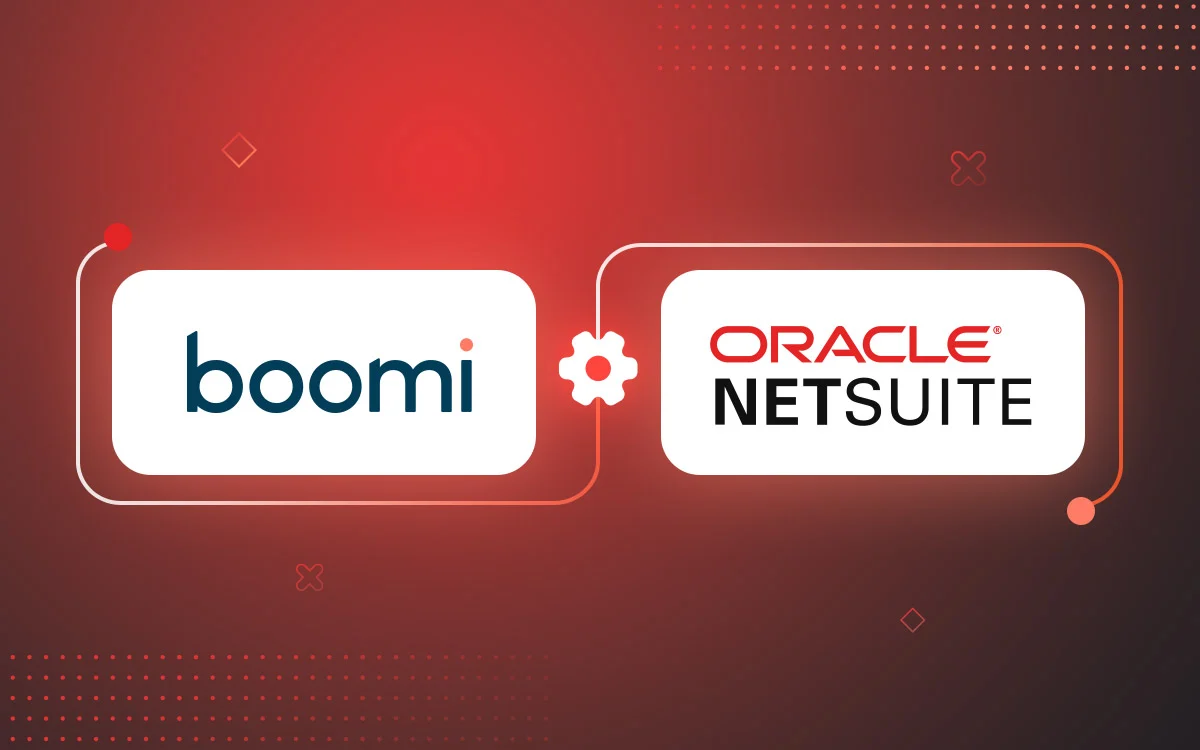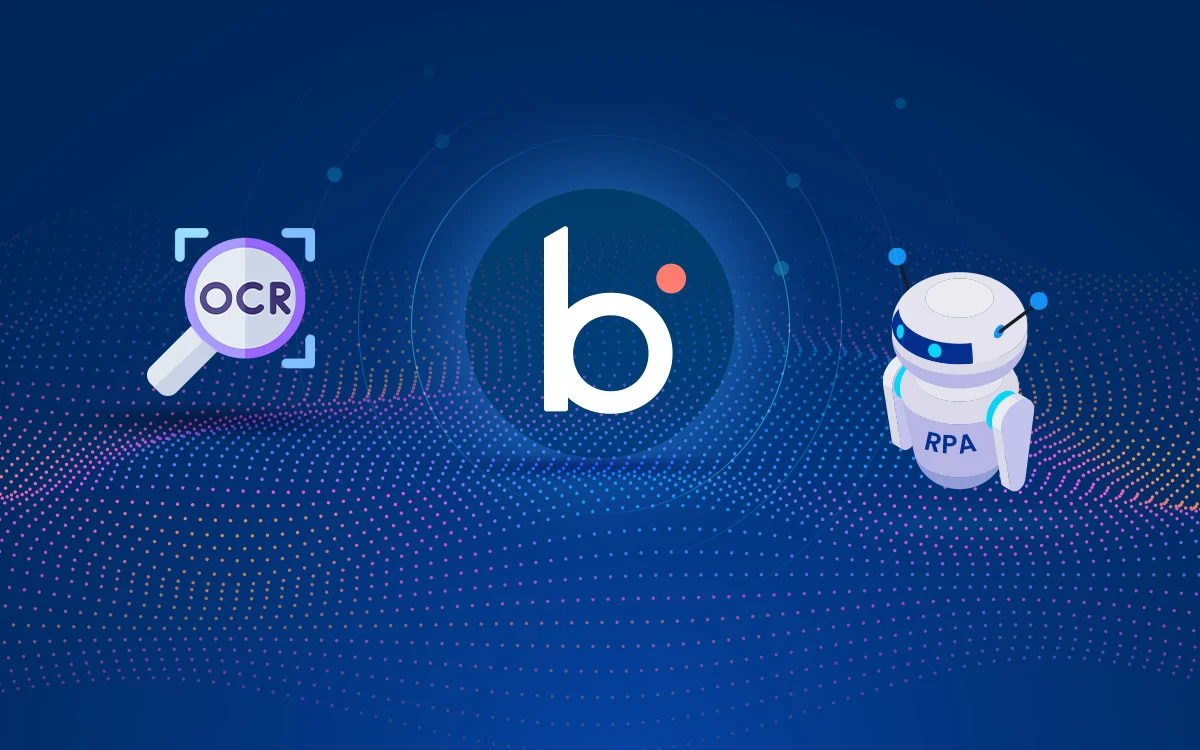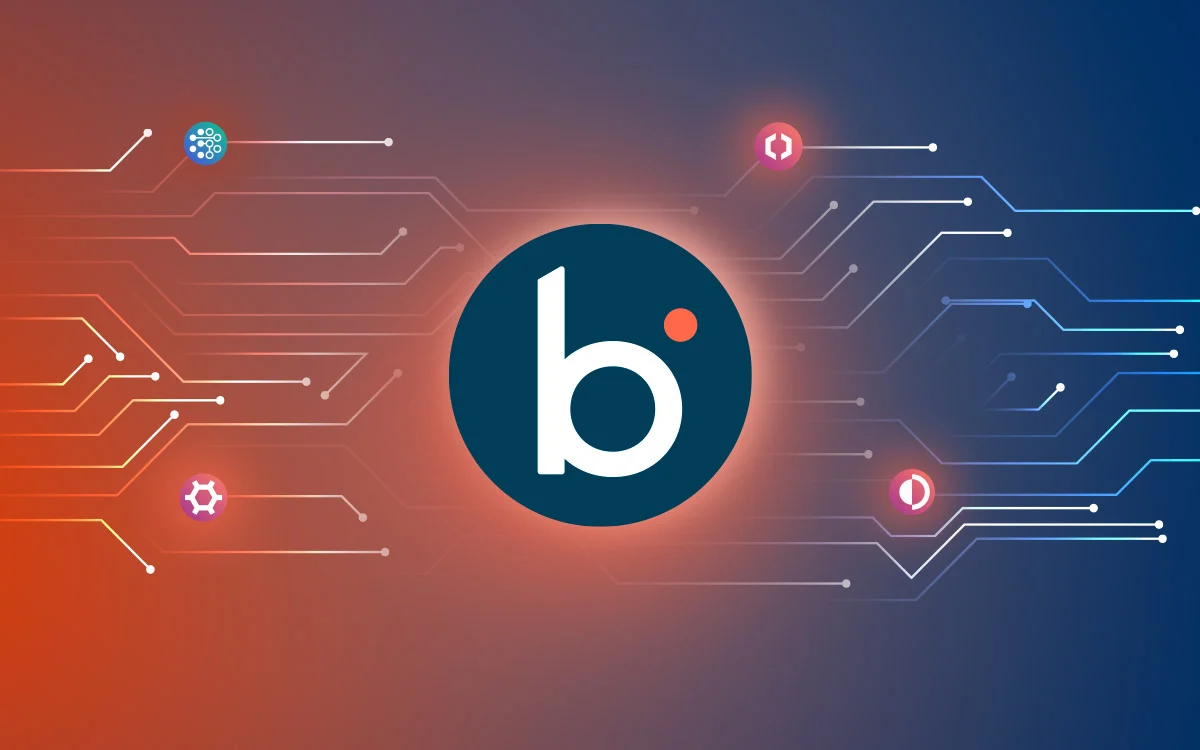Introduction
Enterprise Resource Planning (ERP) is an integrated system used by many organizations to manage business processes. NetSuite – the top ERP platform, offers a comprehensive suite of tools to manage different operations, from finance to inventory to customer relationships. But, when NetSuite exists in isolation, it is limited and creates data silos that hinder the growth and scalability of the organisation.
Boomi acts like a bridge for NetSuite and other applications. This iPaaS connects different systems with NetSuite and provides a consolidated view of information. Boomi NetSuite Integration enhances the ERP’s capabilities and maximises your investment in efficient operations.
Learn how NetSuite Integration with Boomi simplifies system connectivity, automate workflows, and empower businesses with real-time insights.
Why Integrate NetSuite?
NetSuite is the most popular and reliable ERP solution, but it is not that good when operating disparate systems. Integration breaks down data silos and provides a unified view of all the core systems. Connecting NetSuite ERP with other systems like CRM, e-commerce platforms, finance, etc., empowers the organisation’s operations and helps in making informed decision-making.
Integration of NetSuite using an iPaaS maximises its potential as ERP and ensures secure data flow across the system.
Common Challenges with Disconnected Systems
Disconnected systems increase inaccuracy and create numerous bottlnecks, such as high maintenance costs, low productivity, limited real-time data visibility, etc., that affect overall business operational efficiency.
1. Increase Complexity and Maintenance Cost
If there are multiple disparate systems, each system requires separate setup, configuration, and maintenance, which is time-consuming and resource-exhausting. These systems also require separate software licences, IT support for each system, and system compatibility. This complexity and maintenance increase investment requirements and can also lead to lost revenue opportunities.
2. Data Silos and Inaccuracy
Information is scattered across different systems, resulting in data inconsistency, inaccurate reporting, and poor decision-making. When there is a lack of holistic view, ensuring data integrity and consistent updates becomes challenging. Manual data entry is prone to errors that might result in duplicate records or delays in data synchronisation. These inconsistencies compromise the accuracy of reporting and analytics.
3. Inefficient Workflows
Disconnected systems introduce inefficiencies into your workflows. Employees don’t have a unified view of data, and they have to switch between systems to access updated information, creating a disjointed user experience. This manual effort is time-consuming and prone to errors when reconciling data from different systems.
4. Poor Customer Experience
If your ERP, CRM, and marketing automation system operating separately, your marketing team might fail to provide a personalised customer experience. A holistic view of customer history helps understand their interests and preferences. Suppose your inventory is not updated and, the customer has already placed the order; this will lead to user frustration.
5. Limited Visibility
As every system holds different data, consolidating and analysing the information holistically is quite challenging. A limited view of information hinders your ability to generate accurate and timely reports, performance metrics, and patterns. Without a unified view, you might fail to make informed decisions and proactively identify errors.
Benefits of NetSuite Integration
NetSuite integration with other business applications is a powerful solution to build a unified platform to manage all critical business processes and have access to real-time data updates. The benefits of NetSuite integration are:
1. Streamlined Operations and Automation
NetSuite integration automates key processes and eliminates the need for manual efforts, reducing errors and freeing up employees to engage in more strategic initiatives. It connects other core systems with NetSuite and ensures real-time data flow across the organisation. This ensures every stakeholder has access to updated data to make informed decisions about the company’s growth.
Read More: Boomi Consulting Companies: How to Find the Best Partner for Scalable Integration in 2025?
Moreover, you get a centralised view of managing and monitoring integration to simplify the complexity of connecting with multiple systems.
2. Enhanced Data Visibility and Accuracy
Integration of NetSuite provides you with a consolidated view of the business data, eliminating data silos and providing a single source of truth. Eliminating manual efforts enhances data quality and accuracy with features like data transfer and validation. This results in accurate and reliable reporting.
It also enhances the data quality and security by complying with government regulations.
3. Enhanced Customisation and Flexibility
Integration enhanced the NetSuite customisation capability and flexibility by allowing you to develop tailored solutions based on your business needs without needing extensive coding within NetSuite itself. It reduces the risk of disrupting core NetSuite functionality.
4. Unlock Potential of NetSuite Cloud
For organisations already leveraging the functionality of the NetSuite SuiteCloud platform, integration provides a scalable way to connect SuiteCloud applications with other on-premise and cloud systems. This scalability maximises your SuiteCloud investment.
5. Improved Customer Experiences
Integration connects NetSuite with platforms like CRM and e-commerce to offer a 360-degree user journey. This helps to personalise interactions and enhance customer experience and relationships.
When your NetSuite is connected with other applications, stakeholders can access real-time customer data and address user inquiries to gain or retain a loyal user base.
Why choose Boomi as a solution?
Boomi is a leading Integration Platform as a Service (iPaaS) that enhances the capabilities and functionalities of NetSuite. It connects NetSuite with other cloud and on-premise applications. Its cloud-native architecture with a comprehensive suite of tools and services allows you to build, deploy, and manage integration without relying on coding experts and extensive IT resources.
With its built-in capabilities, Boomi enhanced NetSuite’s connectivity and functionality. It makes NetSuite more compatible and reliable by allowing continuous and secure data flow across other applications. Although there are numerous ways of NetSuite integration,but Boomi is the most reliable solution for scaling your business as it grows.
Overview of the Boomi Advanced Capabilities
Boomi platform offers a comprehensive suite of tools to address all your integration needs. Here are the key components of the platform:
- Boomi Integration – Boomi integration allows you to design, develop, and deploy integration using a drag-and-drop interface. The low-code approach makes it easy to use, accessible to a wider audience, and accelerates the integration process. Boomi has a massive library of pre-built connectors that effortlessly connects NetSuite integration with other applications.
- Boomi API Management – Boomi offers the capabilities to manage the API lifecycle from creation to publication. During integration, businesses can expose NetSuite data and functionality as APIs to interact with other applications quickly and securely. It eases the process of connecting and data flow across the whole system.
- Boomi Flow – Boomi Flow automates complex and cross-system business processes like NetSuite. It orchestrates multi-step workflows across different applications by eliminating the dependency on manual efforts. By effortlessly integrating NetSuite with other application, you can enhance the organization’s efficiency, productivity, and resource allocation.
- Boomi B2B/EDI Management – Boomi EDI ensures continuous data transfer and communication with trading partners. Boomi’s built-in EDI functionality allows for the exchange of EDI documents and other B2B messages, ensuring smooth and quick communication without any rejections. This simplifies the process of NetSuite integration with other core systems like supply chain, invoicing, and automated order processing.
- Boomi Data Management Hub – Boomi has an in-built data management capability to ensure data consistency and accuracy across all the integrated systems. Boomi MDM offers a central hub to manage and synchronize the master data with a single source of truth for the organisation. It ensures that during NetSuite integration, the data is compiled according to standard regulations.
Key Advantages of using Boomi for NetSuite Integration
From an easy-to-use UI interface to specific NetSuite connectors, Boomi integration has several advantages:
- Data Migration Boomi simplifies the first-time data migration from a legacy system to NetSuite. It automates the process of data extraction, transformation, and loading. By using connectors and data mapping capabilities, Boomi ensures minimal errors during migration. Businesses can easily migrate large datasets.
- Accelerated Integration Boomi has a massive library of connectors to connect NetSuite with other popular applications. It reduces the time and effort required to customise any integration process, so businesses can connect NetSuite with other systems quickly and efficiently.
- Simplified Development Boomi’s easy-to-use interface allows users to build and manage integrations with drag-and-drop. For NetSuite integration, you don’t require a coding expert, making integration accessible to a larger user base.
- Cost-Effectiveness Boomi’s cloud-based architecture makes scalability easy and cost-effective. It eliminates the need to invest in expensive on-premise integration infrastructure. Boomi NetSuite integration reduces IT costs and frees up resources to focus on more strategic initiatives.
- Improved Business Agility Boomi’s easy-to-use interface and advanced capabilities empower your business to connect NetSuite with new applications based on the market’s demand. Businesses can quickly scale and respond to the opportunities with advanced integration capabilities to maintain a competitive edge.
- Real-time Connectivity NetSuite integration using Boomi enhanced connectivity and data accessibility in real-time. It enables real-time data flow among NetSuite and other applications. Boomi offers a unified view of information for all stakeholders to make informed decisions.
- Security and Reliability Boomi offers advanced features to protect your data during integration. It complies with industry regulations like GDPR (EU) and CCPA to safeguard your data using different standards. Boomi also validates and performs quality checks during the integration process.
- Unified Platform Boomi offers a unified platform for all your integration needs, including application integration, API management, B2B/EDI connectivity, and workflow automation. To integrate NetSuite, you don’t have to rely on multiple IT resources and vendors; Boomi can manage it all.
IV. How Boomi Enhances NetSuite Capabilities
Boomi iPaaS acts as a bridge to connect other applications with NetSuite to enhance the overall operational efficiency of an organisation. This iPaaS utilises the NetSuite capabilities to maximise its potential with other applications. Here is how:
1. Automate Business Process
Boomi empowers the organisation by automating workflows and reducing the need for manual data entry. Inventory updates, order processing, and financial reconciliation are seamlessly automated between other applications and NetSuite.
Read More: Why NetSuite ERP for Digital Transformation in 2025?
2. Data Transformation & Mapping
Boomi data management is known to enhance data accuracy across the system. The iPaaS uses its robust data mapping and transformation tools to manage the different data formats across multiple systems for seamless data flow between NetSuite and other applications.
3. Performance Optimisation & Scalability
As your business grows, so does your data volume. Boomi NetSuite integration provides a scalable solution to ensure smooth data flow and performance during peak periods. It prevents bottlenecks and ensures your business is scaling without requiring external resources.
4. Leveraging the NetSuite SuiteCloud API
Boomi utilises the SuiteCloud API to interact with NetSuite securely, ensuring real-time synchronisation and eliminating the dependency on complex data extracts. The SuiteCloud API of NetSuite also allows Boomi to trigger NetSuite workflows and processes to automate cross-functional tasks. Additionally, NetSuite SuiteCloud API allows Boomi to extend this ERP functionality and enable tailor integrations based on business requirements.
5. Boomi NetSuite Connector
Boomi NetSuite Connector is a pre-built component available in Boomi itself. It ensures seamless data exchange between NetSuite and other applications. This connector allows Boomi to connect NetSuite with core systems like CRM, e-commerce platforms, automation tools, databases, etc. It saves time by eliminating the need for custom coding.
Boomi Integration Patterns for NetSuite
Boomi offers different patterns to integrate NetSuite. It depends on data the type and volume you want to transfer from NetSuite to other applications. Understanding these patterns helps you to choose the correct one to address your business needs.
1. Point-to-Point Integration
Point-to-point integration connects two applications, NetSuite and a single CRM system. It is straightforward and suitable for a small number of systems. Data flows directly from one end to the other. It is best used when integrating or dealing with highly specialised systems. However, it is limited in terms of scalabil
2. Hub-and-Spoke Model
The hub-and-spoke model is when NetSuite acts as a central hub, and other applications (as spokes) connect to it. This model is suitable for integrating multiple systems with NetSuite and simplifying integration management, data consistency, and control. It provides a unified point to manage integration and comply with data governance policies. When NetSuite is overloaded, performance bottlenecks can be introduced.
3. API-Led Integration
API-led integration is a modern approach to connecting core systems. In this application, the Programming Interface exposes NetSuite data and functionality to connect and transfer data to other systems. Boomi creates, manages, and orchestrates these APIs. This pattern is best for complex integration involving multiple systems and diverse data flows. It is highly scalable and flexible and supports real-time integration and microservices. However, it requires a thorough understanding of API design and management.
Conclusion
Business success today demands effortless data sharing among multiple systems to ensure the reliance on the same data to work towards the organisation’s growth. NetSuite functions as an advanced cloud ERP for business core management yet reaches its complete potential by becoming part of an extensive application ecosystem.
The iPaaS solution like Boomi brings you strong and flexible integration capabilities that simplify the connection of NetSuite with business applications. Boomi enables organisations through workflow automation along with data silo elimination to generate real-time insights which leads to operational optimisation and improved customer experiences and data-based decision-making capabilities.
Boomi provides adaptable solutions to fit every business size, from minor to enterprise-level, as it offers customisation options for various integration requirements. The tools and expertise in Boomi allow organisations to achieve integration success with NetSuite while achieving business growth with enhanced operational efficiency and management agility. The investment toward robust integration with Boomi delivers present-day benefits and upcoming organisational growth by maximising NetSuite’s potential.
FAQs
Q – How do I create a NetSuite connection in Boomi?
A- To create a NetSuite connection in Boomi, you must create an account and set up a new connection using the NetSuite Connector. You will require NetSuite credentials like Account ID, Customer Key and more. You can get it done with the assistance of Boomi experts.
Q – What kind of support does Boomi offer for NetSuite integrations?
A – For NetSuite integration, Boomi offers extensive support, such as pre-built connectors, API-based integration capabilities, and real-time data sync. For extended user support, it has robust documentation, community forums, and direct customer assistance for troubleshooting. Additionally, it offers Boomi Managed Services and consultation to address all your challenges.
Q – What is the cost of integrating NetSuite with Boomi?
A – NetSuite integration with Boomi costs depend on the number of connections, data volume, and customisation requirements. Boomi has a pay-on-the-go pricing standard, so you can get services based on your business requirements. To know more, contact us.
Q – How complex is it to implement a NetSuite integration with Boomi?
A—Boomi’s low code, drag-and-drop interface, and pre-built connectors make it the most effortless solution for NetSuite Integration. However, the complexity might vary based on the use cases. Our Boomi-certified experts can make the Boomi NetSuite integration easy for you.
Q – Can Boomi handle large volumes of data and complex integration scenarios with NetSuite?
A—Boomi can handle massive data processing and complex integration scenarios with NetSuite. This iPaaS supports batch processing, real-time data exchange, and high-volume transactions, making it ideal for big enterprises. Boomi’s cloud-native architecture makes it a scalable solution for business growth.



